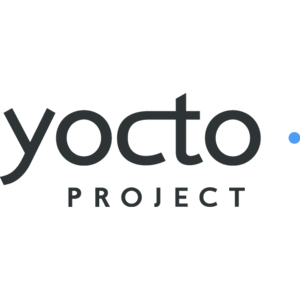Difference between revisions of "Developers Guide-YOCTO-EBOX-IMX8MM"
From ICOP tech wiki
| (12 intermediate revisions by 2 users not shown) | |||
| Line 29: | Line 29: | ||
<tr> | <tr> | ||
<td></td> | <td></td> | ||
| − | <td style="padding-left: 4%; padding-right: 4%; vertical-align:top; max-width:100%;"><b><big>Test and use an Interface</big></b><div style="width:100%;"><div style="width:50%; float: left;"><ul><li><big>[[ | + | <td style="padding-left: 4%; padding-right: 4%; vertical-align:top; max-width:100%;"><b><big>Test and use an Interface</big></b><div style="width:100%;"><div style="width:50%; float: left;"><ul><li><big>[[EBOX-IMX8MM-Bluetooth A2DP|Bluetooth A2DP]]</big></li><li><big>[[EBOX-IMX8MM-Ethernet|Ethernet]]</big></li><li><big>[[EBOX-IMX8MM-UART|UART]]</big></li><li><big>[[EBOX-IMX8MM-WiFi|WiFi]]</big></li><li><big>[[EBOX-IMX8MM-SPK-OUT|SPK-OUT]]</big></li><li><big>[[How to check storages contents in Yocto-EBOX-IMX8MM|How to check storages contents in Yocto]]</big> |
| − | + | </li></ul></div> | |
| − | |||
</td></tr> | </td></tr> | ||
<tr> | <tr> | ||
| Line 49: | Line 48: | ||
<td></td> | <td></td> | ||
<td style="padding-left: 4%; padding-right: 4%; vertical-align:top; max-width:100%;"><ul> | <td style="padding-left: 4%; padding-right: 4%; vertical-align:top; max-width:100%;"><ul> | ||
| − | <li> | + | <li> <big>[[Recipe for building Yocto Linux for EBOX-IMX8MM]]</big> |
</li> | </li> | ||
| − | <li> <big>[[Recovery the Yocto in the eMMC under UBOOT mode| | + | <li> <big>[[Recovery the Yocto in the eMMC under UBOOT mode-EBOX-IMX8MM|Recovery the Yocto in the eMMC under UBOOT mode]]</big> |
</li> | </li> | ||
| − | <li> <big>[[ | + | <li> [[How to set up time zone in Yocto-IMX8MM|<big>How to set up time zone in Yocto</big>]] |
| + | </li> | ||
| + | <li> <big>[[PCI7600G LTE module setting|PCI7600G MINI PCI-E 4G Module driver setting]]</big> | ||
</li> | </li> | ||
</ul> | </ul> | ||
Latest revision as of 17:31, 23 September 2021
| Developers Guide |
Yocto ProjectYocto project is a framework for creating a Linux distributions for embedded devices. It's layering mechanism makes it easy to add Linux to new target devices highly customized for a particular platform; it can include custom start-up scripts, software packages built with a high degree of optimization for a particular architecture, and different user interfaces from full Gnome desktop to a simple a serial console. This release is based on NXP BSP layer for Yocto framework. |
